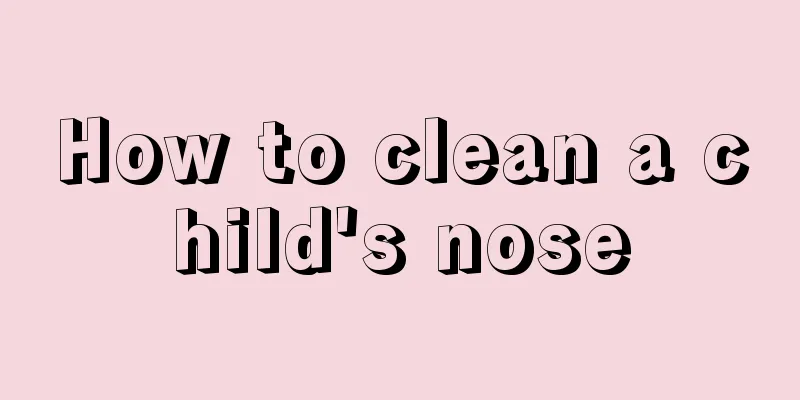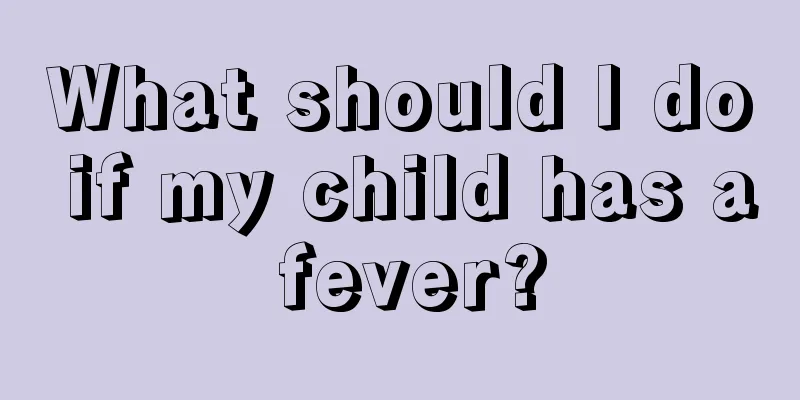Is it okay to bathe a newborn baby frequently?

|
The hospital will organize a bath for the newborn baby. Many young people who take care of their children will think that bathing is good for the baby, which is to take care of the baby's body hygiene and keep the baby clean and not sick. However, for middle-aged and elderly people, it is not okay to bathe the baby at this time. The baby is so young that it will be bad if he catches a cold accidentally during the bath. Therefore, they are reluctant to bathe the baby. So is it good to bathe the newborn baby frequently? No, newborn babies don’t often take baths in summer, just wipe them with a wet towel. Water is not absolutely clean and hygienic, and harmful substances will penetrate into the pores of the baby’s body. The baby’s resistance is very weak. You can bathe the baby occasionally after three months. Studies have shown that it is bad for adults to bathe every day. The bacteria on the human body are divided into beneficial bacteria and harmful bacteria. Bathing every day can effectively remove harmful bacteria while also removing beneficial bacteria. More importantly, it removes the stratum corneum that protects the skin, which is a protective layer that plays an important role in health. This is the reason why many people bathe every day but have bad skin. Adults generally bathe when they need to, and it is correct to bathe every two days. Newborns can be bathed 24 hours after birth. Bathing can clean the skin, prevent skin infections, promote blood circulation and metabolism, and enable the baby to grow healthily. Neonatal growth and development is rapid, the skin is thin and tender, the autoimmune function is low, and the baby is contaminated by breast milk, sweat, urine and feces. Therefore, it is important to pay attention to skin cleanliness. The baby should take a bath once a day, and twice a day in the summer. Bathing time can be chosen before feeding to avoid spitting up caused by changing body position. The room temperature should be 25-28 degrees. Close the doors and windows before taking a bath to avoid convection wind. Prepare a soft dry towel, spare clothes, diapers and a blanket. You need a special bathtub for newborns. Clean the bathtub before each use. Fill it with cold water first, then hot water to avoid scalding the baby in the rush. It is more appropriate to keep the water temperature between 37.5-40 degrees (as for the water temperature, each baby may be different. My baby’s actual experience is that 35-36 degrees is his favorite temperature. He is a little stove and is very afraid of heat. You can feel it out. I think 37 is generally enough. The baby will be uncomfortable if it is too hot. It can be a little cooler in summer and higher in winter). It is advisable to choose baby soap which is less irritating to the skin (it is also possible not to use it, depending on the baby's oil secretion. I use a general-purpose body shower gel for my baby). Newborn babies can be bathed, but not too often. For adults, frequent bathing is very bad for the body, let alone children. Children's skin is very tender. If you bathe your child frequently every day, it will easily make the child's skin drier and even irritate the child's skin. |
<<: What should I do if my child keeps having a dry cough?
>>: Is it okay for babies to take a bath every day in winter?
Recommend
Things to note when conducting hearing screening for newborn babies
In fact, examination is very important for babies...
When does a baby's belly button fall off?
The birth of every new life will bring a lot of j...
What to do if your child is slow to respond
In life, we often hear many parents say that thei...
Reasons why newborns cry and don't sleep at night
In fact, in daily life, we need to pay great atte...
What to do if your child has swollen abdominal lymph nodes
Abdominal lymphadenopathy in children is a common...
What should children with hyperopia and astigmatism eat?
In life, many foods can not only fill the stomach...
What should I do if my child’s throat becomes festering?
Tonsillitis and tonsil suppuration are the most t...
How long does it take for a baby to recover from viral diarrhea?
Baby's viral diarrhea is caused by inflammati...
What to do if your child has rhinitis
Children with allergic rhinitis may suffer from n...
What should I do if my child has an itchy throat?
Although many parents attach great importance to ...
8 fraud prevention strategies that children must know
1. Children's Songs to Protect Children The d...
The 9 snacks that children often eat have the most food additives
The report pointed out that 10% of children eat s...
Garlic and rock sugar water cough baby more than two months old
Garlic, also known as garlic, has the effects of ...
Why does my baby toss and turn in his sleep?
When there is a baby in the family, the whole fam...
What to do about premature graying of hair?
Many teenagers will have premature graying of hai...









